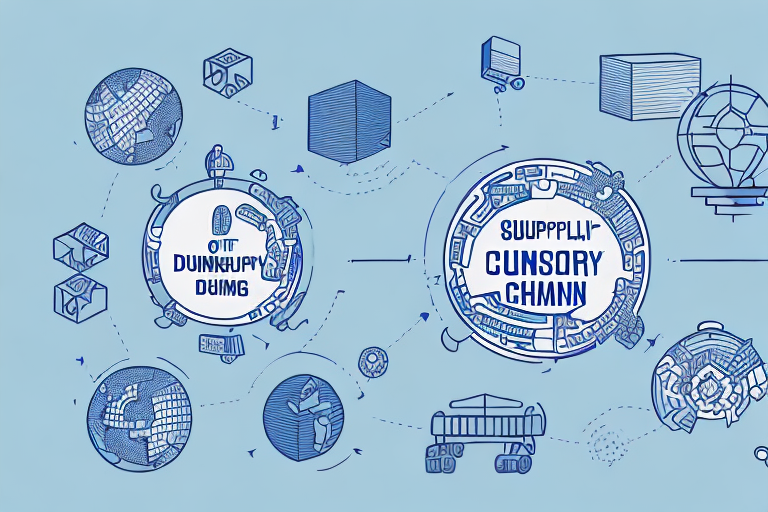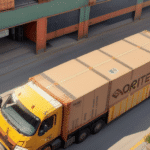Understanding Anti-Dumping Duties and Their Impact on the Supply Chain
Dumping is a practice in which a company exports a product to another country at a price lower than the price charged in the domestic market. This can create unfair competition and harm domestic producers. Anti-dumping duties are tariffs imposed on imported goods that are sold below their fair market value in order to protect the domestic market. In this article, we provide a comprehensive overview of anti-dumping duties, their impact on the supply chain, and strategies businesses can employ to navigate these challenges.
Overview of Dumping and Anti-Dumping Duties
Dumping can occur for various reasons, such as:
- Surplus domestic production
- Desire to capture market share
- Exerting pricing pressure on competitors
Governments impose anti-dumping duties to counteract the effects of dumping on domestic producers and prevent injury to their industries. These duties are based on investigations by trade authorities, such as the World Trade Organization (WTO), which evaluate whether the price of imported goods is lower than that of comparable domestic products.
Anti-dumping duties are not permanent and can be reviewed periodically to ensure their necessity. Duties may be removed if the domestic industry is no longer harmed, or increased if dumping persists. Companies engaged in international trade must be aware of the potential for anti-dumping duties and ensure their pricing practices comply with trade laws.
Impact of Anti-Dumping Duties on Global Trade
The imposition of anti-dumping duties significantly affects global trade by:
- Leading to retaliation from affected countries, escalating trade tensions
- Disrupting established supply chains
- Affecting prices and availability of goods for consumers
Proponents argue that anti-dumping measures provide a level playing field for domestic producers and prevent unfair competition. However, unintended consequences include:
- Targeted countries shifting exports to other markets, increasing competition there
- Difficulty in enforcing duties as companies alter pricing or packaging strategies
Despite challenges, anti-dumping measures remain vital for governments to protect domestic industries. Policymakers must carefully consider the consequences and seek sustainable solutions to address trade imbalances.
The Evolution of Anti-Dumping Legislation
The concept of anti-dumping duties originated in the United States in the early 20th century and has since been adopted by many countries. The rules and procedures for investigating and imposing anti-dumping measures have been refined through international agreements, such as the WTO's Anti-Dumping Agreement.
Debates continue over the effectiveness and fairness of anti-dumping measures. While some argue they protect domestic industries and jobs, others contend they unfairly target foreign competitors and can lead to trade wars. Additionally, there have been instances where anti-dumping measures were used for protectionist purposes rather than addressing genuine unfair trade practices.
Role of Governments in Implementing Anti-Dumping Policies
Governments are responsible for:
- Initiating anti-dumping investigations
- Determining the level of duties to be imposed
- Monitoring compliance with imposed duties
They may also support affected domestic industries through subsidies or loans. Collaboration with other countries to establish international anti-dumping policies can help create a level playing field and prevent unfair trade practices.
Challenges in implementing these policies include accurately determining if a product is sold below fair value and managing potential retaliation from other countries, which can harm domestic exporters.
Economic Effects of Anti-Dumping Measures on the Supply Chain
Anti-dumping duties have both positive and negative economic effects on the supply chain:
- Positive: Protects domestic producers, potentially increasing their market share and incentivizing investment in research and development.
- Negative: Raises costs for downstream industries and consumers, disrupts supply chains, and may lead to retaliation and trade wars.
The overall economic impact depends on factors such as import substitution levels, demand elasticity, and the competitiveness of domestic industries.
For more detailed data on the economic impact, refer to the OECD Trade Reports.
Industries Commonly Targeted by Anti-Dumping Investigations
While anti-dumping investigations can target any imported product, they are more prevalent in industries such as:
- Steel
- Textiles
- Chemicals
- Electronics (e.g., smartphones, laptops, televisions)
- Automotive parts (e.g., tires, engines)
These measures aim to protect domestic industries from unfair competition and ensure fair market conditions.
Challenges for Companies Managing Anti-Dumping Duties in Their Supply Chain
Companies face several challenges, including:
- Complying with complex and varying regulations across countries
- Navigating different legal systems
- Dealing with the uncertainty of ongoing investigations
- Managing relationships with suppliers and customers amidst changing duties
Additionally, lack of transparency in investigation processes and potential retaliation from other countries can complicate compliance and strategy.
Importance of Compliance with Anti-Dumping Regulations for Businesses
Compliance is critical for businesses to:
- Avoid penalties and legal risks
- Demonstrate commitment to fair trade practices
- Enhance reputation and maintain a level playing field
Developing clear policies and procedures, and ensuring awareness among employees, suppliers, and customers, are essential steps for effective compliance.
For guidelines on compliance, refer to the WTO Anti-Dumping Agreement.
Legal Framework for Dealing with Dumping and Anti-Dumping Measures
The legal framework surrounding dumping and anti-dumping measures varies by country but generally includes:
- Calculation of dumping margins by comparing export prices to normal values in the exporting country
- Adjustments for differences in quality, transportation, and taxes
- Adherence to international trade agreements, such as the WTO Anti-Dumping Agreement
Businesses must understand these frameworks and seek legal advice to navigate complex regulations and ensure compliance.
Being found guilty of dumping can result in significant anti-dumping duties, increasing export costs and impacting profitability.
Strategies to Mitigate the Impact of Anti-Dumping Duties on Your Business
Businesses can adopt several strategies to lessen the impact of anti-dumping duties, including:
- Diversifying supply sources to reduce dependency on single markets
- Collaborating with suppliers to enhance product quality and value
- Developing new products to enter different market segments
- Seeking exemptions or duty reductions through legal channels
- Monitoring market trends and adjusting strategies in response to policy changes
Navigating the Complexities of International Trade Laws and Regulations
Successfully navigating international trade laws requires:
- Thorough research and understanding of relevant regulations
- Careful planning and strategy development
- Effective communication with stakeholders, including suppliers and customers
- Seeking professional advice from legal and trade consultants
- Staying informed about developments in international trade policies
Best Practices for Managing Your Supply Chain Amidst Increasing Anti-Dumping Measures
To manage supply chains effectively in the face of rising anti-dumping measures, businesses should:
- Develop robust supply chain strategies that account for anti-dumping risks
- Ensure availability of alternative suppliers to mitigate supply disruptions
- Assess the impact of duties on profitability and adjust operations accordingly
- Establish strong relationships with suppliers and customers based on transparency
- Implement proactive risk management practices to anticipate and respond to policy changes
The Future of Global Trade: Implications for Anti-Dumping Policies and Supply Chain Management
The evolving landscape of global trade suggests that anti-dumping policies will continue to play a significant role in protecting domestic industries. However, emerging trends such as regional trade agreements—including the Comprehensive and Progressive Agreement for Trans-Pacific Partnership (CPTPP)—may alter global trade dynamics.
Businesses must stay informed about these developments and adapt their supply chain strategies to align with new trade agreements and policies, ensuring resilience and competitiveness in a changing global market.






















